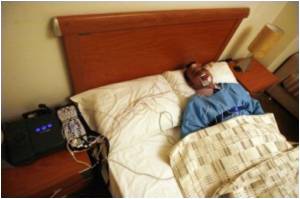A Chinese study with the largest-ever cohort of the very elderly says that it is not just ageing that cause poor sleep in older adults.

All other factors being equal, good sleep quality was 19 percent more common among respondents in their 80s and 38 percent more likely among those in their 90s, compared to those from age 65 to 79.
"These findings may support the argument that sleep problems at old and oldest-old ages likely arise from a variety of physiological and psychosocial factors rather than aging per se," ABC News quoted Gu's group as saying.
Another possibility is that people change their perception of "acceptable" sleep with advancing age, they said.
The researchers analysed a nationally representative, population-based survey dataset from mainland China, which has the world's largest population of nonagenarians and centenarians.
The 2005 wave of the Chinese Longitudinal Healthy Longevity Survey included interviews with 15,638 individuals age 65 and older (43 percent men, 57 percent women).
Advertisement
Overall, 65 percent reported good sleep quality, with 7.5 to 8 hours being the most common duration.
Advertisement
Men were 42 percent more likely to report good sleep than women.
Those of Han ancestry were 34 percent more likely to report good sleep than ethnic Chinese minorities, and those in rural areas were 9 percent more likely to report better sleep than urban dwellers.
After adjustment for socioeconomic condition, family or social support, smoking and drinking habits centenarians were 13 percent more likely to report good sleep quality than their 65- to 79-year-old counterparts.
The study has been published in a recent issue of SLEEP.
Source-ANI
RAS















